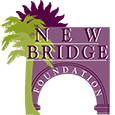It is tempting to think of the recovery journey as moving in a straight line. The fact of that matter is that somewhere around half of all people who take the critical step of getting treatment for their addiction issues will relapse at some point.1 Relapse is such a common occurrence, in fact, that at New Bridge Foundation®, we work specific tools and strategies into our addiction treatment programs to help our clients prevent it before it happens and deal with it when it does. One of the most important ways to prevent relapse from occurring is to understand and be able to identify common relapse triggers.
To learn more about the substance abuse treatment programs at New Bridge Foundation®, reach out to our addiction specialists today using our convenient online form or by calling us at 866.772.8491.
Relapse as a Part of the Recovery Process
At New Bridge Foundation®, we have found over the years that the vast majority of individuals who have made the choice to free themselves of the burden of addiction have a genuine desire to succeed. The commitment and hope involved in the recovery process can make it surprising, painful, and disappointing when a person returns to using drugs or alcohol as a way of coping.
The fact of relapse, however, can also serve as an essential reminder to someone struggling with addiction issues that addiction is a disease that fundamentally affects the chemistry of the brain. It also reminds us that even after weeks, months, and years of sobriety, the disease can rear its ugly head at any time. This is especially true when the individual is put into a situation in which they are reminded of their substance use and their life before they began their recovery journey. We refer to these reminders as “triggers,” and only by understanding the common relapse triggers can an individual battling a substance use problem avoid them successfully.
At New Bridge Foundation®, we work with our clients every day to help them to understand the most common relapse triggers and give them the tools they need for genuine, long-term sobriety.
The Most Common Relapse Triggers
There is a wide range of relapse triggers that can plague individuals who have completed drug rehab at an addiction treatment center like New Bridge Foundation®. Many of these will, naturally, be specific to the individual. For instance, any association with or reference to something from a person’s life before rehab can serve as a trigger. We tend to separate the most common relapse triggers into two broad categories.
1. External Relapse Triggers
Some of the most common relapse triggers arise from outside of the individual; they are a result of a person’s circumstances and environment. These external influences can be particularly dangerous because it can be difficult for a person to avoid or expect contact with them. These include:
- People: Friends with whom an individual used to use substances, friends who continue to use substances, and dealers
- Places: Spaces in which an individual has used substances, or which they associate with substance use including former neighborhoods, workplaces, bars where they used to drink regularly, and places where they used to meet their dealer
- Things: Drug paraphernalia, furniture that they associate with their former use, and other objects linked to their previous life
- Situations: Parties, concerts, work of family events like weddings, anniversaries, and other types of occasions that they might associate with substance use
2. Internal Relapse Triggers
At a top-quality addiction treatment facility like New Bridge Foundation®, one of the primary goals is to help individuals struggling with addiction issues identify and address relapse triggers that are purely psychological and emotional. Some of the common relapse triggers that come from inside the mind of an individual are:
- Positive emotions: Extremely positive feelings like excitement, strength, and confidence that tragically lead individuals to believe that they can use again without relapsing
- Neutral emotions: Many individuals who relapse cite boredom, exhaustion, and loneliness
- Negative emotions: Many return to substance use to avoid emotions like fear, anger, jealousy, and shame
If you or someone you care about is worried about relapse and would like to start a conversation about the external and internal triggers that most often lead to relapse, New Bridge Foundation® is an excellent palace to start.
Learn More About Common Relapse Triggers at New Bridge Foundation®
Recovery is not a simple thing. For many — and arguably, for most — it takes multiple attempts. By understanding the common relapse triggers, however, you can better prepare yourself for them when they arise. In doing so, you just might be able to make your most recent visit to a rehab facility your last visit. Reach out to New Bridge Foundation® online or by calling 866.772.8491 today to learn more.







